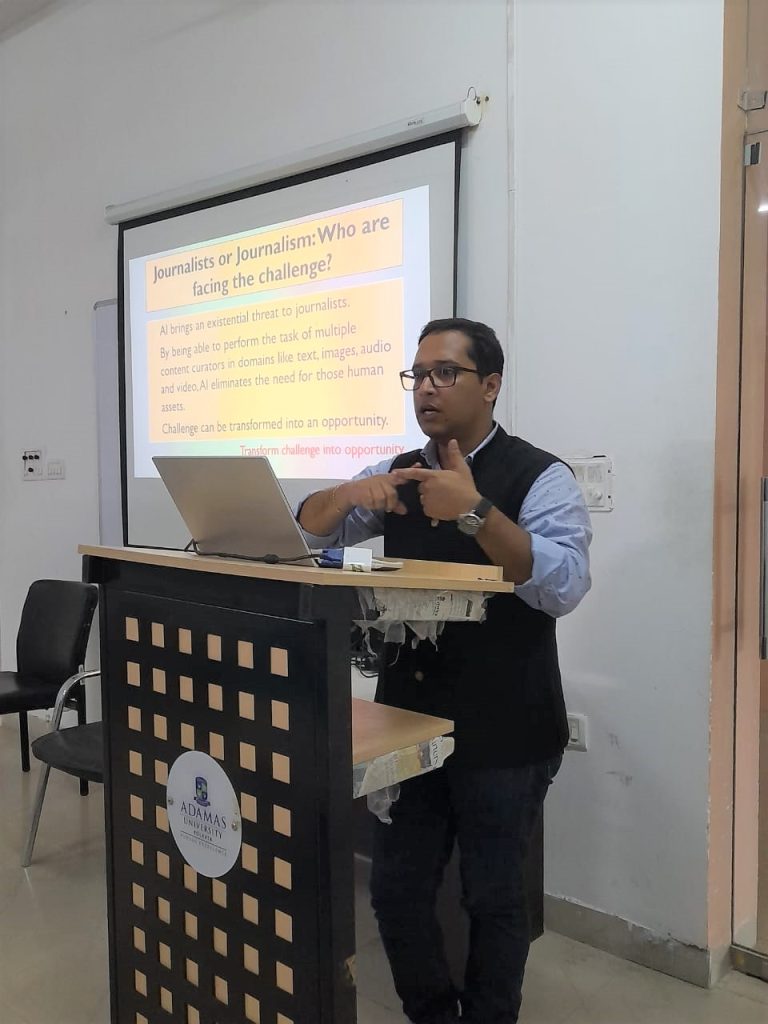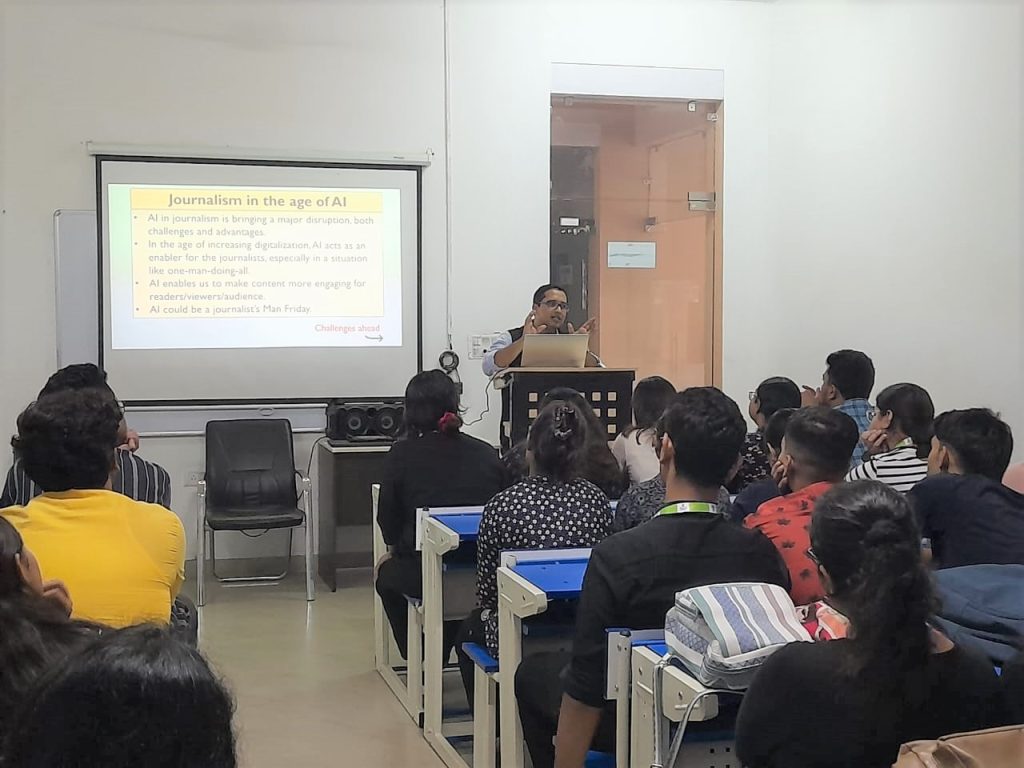Future of Journalism in Times of Artificial Intelligence
Press Release:
The School of Media and Communication at Adamas University, organised a master class by Mr Mainak Das, Deputy Chief Content Producer of Hindustan Times, on the topic of “Future of Journalism in Times of Artificial Intelligence and Augmented Reality” to welcome new students to the undergraduate and graduate programmes. The first-year students learned from their first encounter with a media doyen and received their initial understanding of the media business.
Mr. Das was thrilled to speak with the young people who might one day have prominent positions in the media. His words of support instilled a lot of confidence in the freshmen students just starting their studies in media and communication. Mr. Das informed the students that the media industry is one of the most sought-after careers today due to its rapid expansion. Although journalism has changed significantly over the years, he stated that it is still a rewarding job that requires enthusiasm to pursue. He spent a lot of time discussing the effects of augmented reality and artificial intelligence on journalism in general.

He provided more detail on the definition of artificial intelligence, stating that it can be thought of as a tool or computer that assists in decision-making, learning, and task completion. He also made an effort to explain the benefits and drawbacks of the same to the excited minds. He explained how artificial intelligence (AI) could rob people of their jobs. According to him, some people have already begun to lose their employment as a result of the growing use of AI. Everything is now programmed into AI by humans. What good is using AI if humans can’t put it to use for useful work? Humans must update themselves and perform all tasks performed by artificial intelligence.
He asked, “Who is facing the real challenges? ” in front of the young audiences who were fully engaged in the talk. Is it “Journalism” or the “Journalist”? He said, “AI leads to an existential threat to both the ‘Journalist’ and ‘Journalism’,” speaking to the young media learners. Because AI can replace jobs, the world is under stress.

He taught the aspiring journalists about the fundamental principles of journalism ethics. “It is good to know how AI is used, but using AI constantly or for work that requires a licence is not an ethical practise,” he stated. To identify content produced by AI or Chat GPT, there are techniques available. In journalism, plagiarism is totally unacceptable. As he concluded his presentation, Mr. Mainak Das reminded the aspiring journalists that great power also comes with great responsibility.
Some senior students also discussed their personal experiences as aspiring journalists and content writers. He imparted impressive knowledge with the pupils, which was a lesson that was relevant for them.
The report is being written by Ms. Tania Mukherjee, B.A. (Hons.) Media and Communication, 3rd Year, Department of Journalism and Mass Communication, Adamas University.
Source Swati Agarwal Assistant Professor Adamas University, Kolkata




